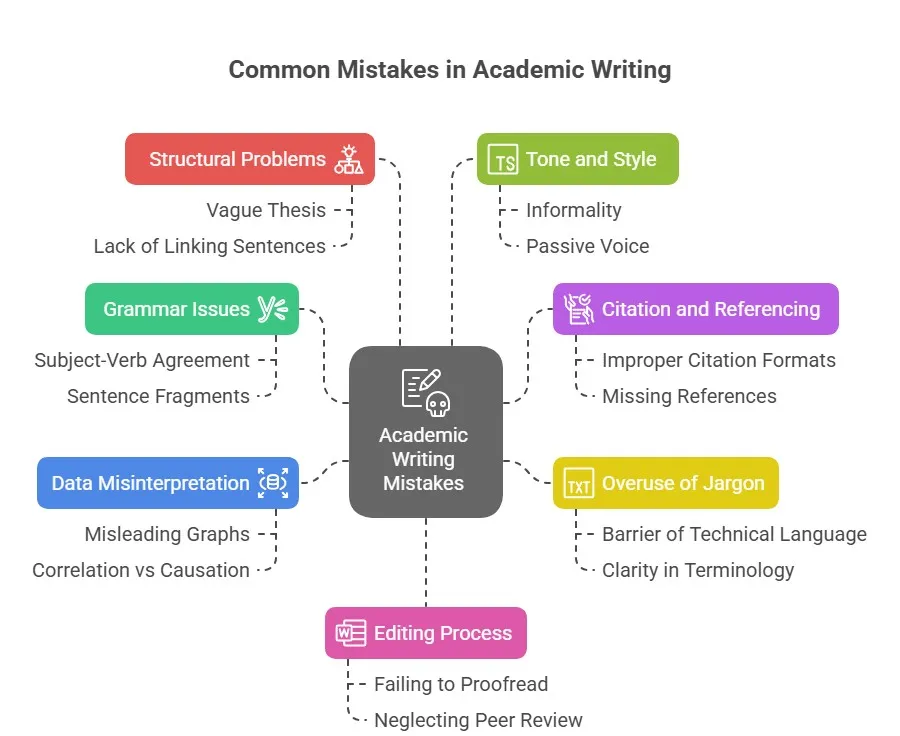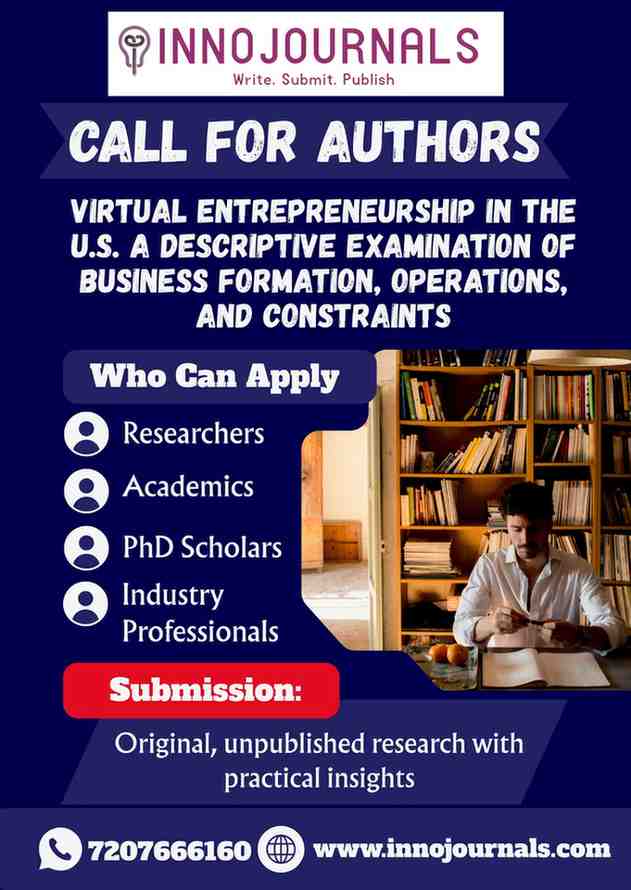Introduction
Why Academic Writing Matters
Academic writing isn’t just about stringing fancy words together to sound smart. It’s a powerful tool for communicating research, presenting arguments, and contributing to knowledge in a field. Whether you’re submitting a journal article or crafting a thesis, good academic writing strengthens your credibility. If it’s your first time stepping into the world of academic writing, it can feel like learning a new language. From structuring your thoughts clearly to citing sources properly, many hurdles can trip up even the brightest minds. The good news? Most mistakes are easily avoidable once you know what to watch out for.
Grammar Issues in Academic Writing
Subject-Verb Agreement, Sentence Fragments
- This might sound basic, but it’s a common pitfall. Writers often mismatch singular subjects with plural verbs or vice versa, especially when long phrases or clauses come between them. For instance, “The list of items are on the table” should be “is on the table.”
- A run-on sentence tries to cram too many ideas into one line without proper punctuation, while a fragment leaves the reader hanging. Both can make your writing confusing. Fixing them is simple: break long sentences and ensure each has a subject and verb.
Misuse of Tenses, Punctuation Problems
- In academic writing, consistency in tense is crucial. Jumping from past to present to future without a clear reason can disorient readers. Stick to one tense per section unless there’s a logical shift required.
- Commas, semicolons, and periods aren’t just decorations. Misusing them can alter the meaning of your sentence entirely. For example, “Let’s eat, Grandma!” versus “Let’s eat Grandma!” — huge difference, right?
Citation and Referencing Mistakes
Improper Citation Formats, Missing References
- Academic writing demands adherence to specific citation styles (APA, MLA, Chicago, etc.). Beginners often mix formats or apply them inconsistently. Invest time in learning the required style guide — tools like Zotero or EndNote can help.
- It’s easy to forget to cite when you’re deep in writing. But missing references can raise accusations of plagiarism and undermine your work’s credibility. Double-check that every quote, idea, or fact from another source is cited.
Over-reliance on a Single Source and Plagiarism
- Quoting only one author or study throughout your paper weakens your argument. Academic writing thrives on diverse perspectives, so make sure to engage with multiple credible sources to show depth and breadth.
- Sometimes, paraphrasing too closely or forgetting to cite a summary can lead to accidental plagiarism. Use plagiarism checkers and always err on the side of over-citing if you’re unsure.
Overuse and Misuse of Jargon
Barrier, Technical Language and Clarity for Academic Writing
- Using field-specific terms shows you know your stuff, but flooding your paper with obscure terminology can alienate readers — even experts. Make your writing accessible without dumbing it down.
- Aim for precision without sacrificing clarity. Instead of using jargon as a crutch, explain complex ideas in simple terms. If your argument only makes sense to a niche audience, you’re missing the point of academic communication.
Data Misinterpretation
Misleading Graphs, Visuals, Data Limitations for Academic Writing
- Charts and graphs should enhance understanding, not confuse readers. Avoid distorting axes or cherry-picking data to support your argument. Honesty in visual representation builds trust.
- No data set is perfect. Acknowledging limitations — sample size, bias, errors — doesn’t weaken your paper; it strengthens it by showing transparency and critical thinking.
Correlation vs Causation Confusion
Just because two things happen together doesn’t mean one causes the other. This logical fallacy is rampant among first-time academic writers. Be cautious and critical when drawing conclusions from your data.
Structural and Formatting Problems
- Your thesis is the foundation of your paper. If it’s vague, overly broad, or missing, your entire argument will suffer. Be clear, concise, and assertive in stating your central point.
- Jumping from one idea to the next without proper linking sentences can disorient your reader. Use transition words like “however,” “therefore,” or “furthermore” to guide the flow.
- Ideas should build logically from one to the next. Creating an outline before writing helps maintain this structure. Random thoughts strung together won’t make a convincing academic argument.

Tone and Style Issues
Informality in Academic Writing
- While writing in a personal tone can be engaging, academic writing demands a certain level of formality. Avoid slang, contractions (“don’t,” “won’t”), and conversational phrases unless writing for a broader, public audience.
- Academic writing often leans toward passive voice, but too much of it can make your work dull and indirect. For example, instead of “The experiment was conducted,” say “We conducted the experiment.” Use active voice to add clarity and energy.
Neglecting the Editing Process
Failing to Proofread, Peer Review for Academic Writing
- Typos and grammar mistakes can ruin an otherwise brilliant paper. Always leave time to proofread. Reading aloud or using editing tools like Grammarly can help catch common errors.
- A second pair of eyes can catch what you miss. Whether it’s a classmate, mentor, or writing center tutor, getting feedback before submission often leads to significant improvements.
Conclusion
The Road to Better Academic Writing
Academic writing isn’t about perfection from the start — it’s about awareness and continuous improvement. First-time authors often stumble, but every mistake is a lesson. By avoiding the pitfalls discussed above and embracing a disciplined, thoughtful approach, you’ll not only write better papers but also grow as a scholar.


Leave a Reply